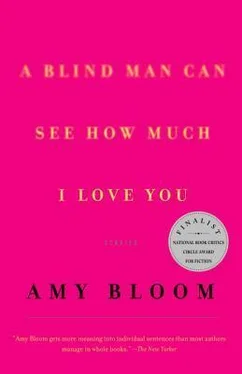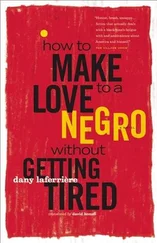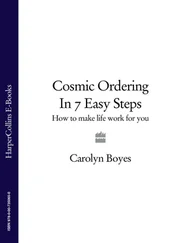“Do you mind Peter’s not coming?” Buster says.
“Not really.”
Lionel looks at her. “You must miss Pop,” he says.
“Of course, honey. I miss him all the time.” This is not entirely true. Julia misses Lionel Senior when she hears an alto sax playing anything, even one weak note, and she misses him when she takes out the garbage; she misses him when she sees a couple dancing, and she misses him every time she looks at Buster, who has resembled her for the first thirty years of his life, with his father apparent only in his curly hair, and now looks almost too much like the man she married.
Buster puts his arm around her waist. “You must miss Peaches too.” He only met Peaches a few times when she was well and charming, and a few more when she was dying, collapsed in his mother’s bed like some great gray beast, all bones and crushed skin, barely able to squeeze her famous voice out through the cords.
Julia would like to say that missing Peaches doesn’t cover it. She misses Peaches as much as she missed her stepson during his fifteen-year absence. She misses Peaches the way you miss good health when you have cancer. She misses her husband, of course she misses him and their twelve years together, but that grief has been softened, sweetened by all the time and life that came after. The wound of Peaches’ death will not heal or close up; at most the edges harden some as the day goes on, and as she opens her mouth now to say nothing at all about her last love, she thinks that even if Lionel is all wrong about what kind of man Peter is, he is fundamentally right. Peter is not worth the effort.
“I do miss Peaches too, of course.”
Lionel has all of Peaches Figueroa’s albums. On the first one, dark blond hair waves around a wide bronze face, one smooth lock half covering a round green eye heavily made-up. Black velvet wraps low across her breasts, and when Lionel was nineteen it was one of the small pleasures of his life to look at the dark amber crescent of her aureole, just visible above the velvet rim, and listen to that golden, spilling voice.
“I’m sorry I didn’t meet her.” Lionel would like to ask his mother what it was like to go from a man to a woman, whether it changed her somehow (which he believes but cannot explain), and how she could go from his father and Peaches Figueroa, both geniuses of a kind, to Peter down the road, who sounds to Lionel like the most fatiguing, sorry-assed, ready-for-the-nursing-home, limp-dick loser.
Julia raises an eyebrow and goes into the kitchen.
The men look at each other.
“We could open the wine,” Lionel says. “You liked her, didn’t you?”
“I really liked her,” Buster says. He does not say, She scared the shit out of Jewelle, but she would have liked you, boy. She liked handsome, and she knew we all have that soft spot for talent, especially musical talent, and that we don’t mind, we have even been known to encourage, a certain amount of accompanying attitude. Peaches had been Buster’s favorite diva. “Open the wine up. You let those babies breathe. I’ll get everyone down here.”
“It might be another half-hour for the turkey,” Jewelle says. “Sorry.”
“Don’t worry, honey.” Buster eats one of Corinne’s peanut-butter-stuffed celery sticks.
“Charades?” Julia says, putting out a small bowl of nuts and a larger one of black and green olives. Charades was their great family game, played in airports and hotel lobbies, played with very small gestures while flying to Denmark every summer for the Copenhagen jazz festival, played on Amtrak and in the occasional stretch limo to Newport, and played expertly by Lionel and Buster whenever the occasion has arisen since. Corinne and Jordan don’t know what Charades is, but Grandma Julia has already taken them back to the kitchen and distributed two salad bowls, six pencils, and a pile of scrap paper. Corinne will act out The Cat in the Hat, and Jordan will do his favorite song, “Welcome to Miami.” Corinne practices making the hat shape and stepping into it while Jordan pulls off his bow tie and slides on his knees across the kitchen floor, wild and shiny and fly like Will Smith. They are naturals, Julia thinks, and thinks further that it is a ridiculous thing to be pleased about — who knows what kind of people they will grow up to be? — but she cannot help believing that their mostly good genes and their ability to play Charades are as reasonable an assurance of future success as anything else.
No one wants to be teamed with Jewelle. She is smart about many things, talented in a dozen ways, and an excellent mother, and both men think she looks terrific with the low cups of her turquoise lace bra ducking in and out of view, but she’s no good at Charades. She goes blank after the first syllable and stamps her foot and blinks back tears until her time is up. She never gets the hard ones, and even with the easiest title she guesses blindly without listening to what she’s said. Jewelle is famous for “Exobus” and “Casabroomca.”
I can’t put husband and wife together, Julia thinks, feeling the tug of dinner party rules she has ignored for twenty years. “Girls against boys, everybody?”
Jewelle claims the couch for the three girls, and Buster and Lionel look at each other. It is one of the things they like best about their mother; she would rather be kind than win. They slap hands. Unless Corinne is very, very good in a way that is not normal for a three-year-old, they will wipe the floor with the girl team.
Jewelle is delighted. Julia is an excellent guesser and a patient performer.
Lionel says, “Rules, everybody.” No one expects the children to do anything except act out their charades and yell out meaningless guesses. The recitation of rules is for Jewelle. “No talking while acting. Not even whispering. No foreign languages—”
“Not even French,” Jewelle says. Lionel is annoying in English; he is obnoxious in French.
“Not even French. No props. No mouthing. Kids, look.” He shows them the signs for book and television and movie and musical, for little words, for “sounds like.”
Jordan says, “Where’s Ari?”
They all look around the room. Jewelle sighs. “Jordy go get him. He’s probably still in Uncle Lionel’s room. When did you see him last, Lionel?” she says.
Jordan runs up the stairs.
“I didn’t lose him, Jewelle. He’s probably just resting. It was a long trip.”
Ari comes down in crumpled khakis and a brown sweater. Terrible colors for him, Jewelle and Julia think.
In French, Lionel says, “Good boy. You look ready for dinner. Come sit by me and I’ll show you how to play this game.”
Ari sits on the floor in front of Lionel. He doesn’t expect that the game will be explained to him; it will be in very fast English, it will make them all laugh with each other, and his stepfather, who is already winking at stupid baby Corinne, will go on laughing and joking, in English.
The children perform their charades, and the adults are almost embarrassed to be so pleased. As Julia stands up to do Love’s Labour’s Lost, Jewelle says, “Let me just run into the kitchen.”
Lionel says, “Go ahead, Ma. You’re no worse off with Corinne,” and Buster laughs and looks at the floor. He loves Jewelle, but there is something about this particular disability that seems so harmlessly funny; if she were fat, or a bad dancer, or not very bright, he would not laugh, ever.
As Julia is very slowly helping Corinne guess that it’s three words, Jewelle walks into the living room, struggling with the large turkey still sizzling on the wide silver platter.
“It’s that time,” she says.
Buster says, “I’ll carve,” and Jewelle, who heard him laugh, says, “No, Lionel’s neater, let him do it.”
Читать дальше












